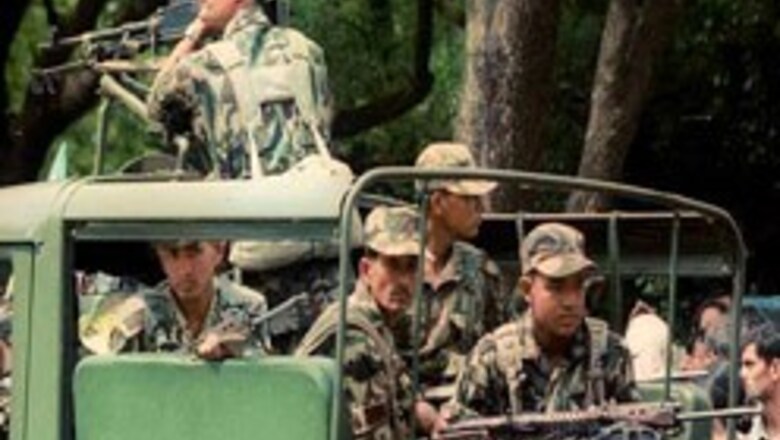
views
Kathmandu: The United Nations on Friday accused Nepal's army of torturing people detained in its war against Maoist rebels and "disappearances" of many prisoners.
Releasing a study of prisoners at just one army barracks, the United Nations representative of the UN High Commissioner for Human Rights (OHCHR) in Nepal, Ian Martin, said the army flouted international rules and "those detained were disappeared".
"Our investigations have found that most of the hundreds of individuals who were arrested were subjected to severe and prolonged ill-treatment and torture," Martin said at a news conference.
"There were acts of torture involving sexual humiliation of both male and female detainees. Detainees were repeatedly threatened with execution," he added.
The UN has given the report on arrests, torture and disappearances at the Maharajgunj barracks to Prime Minister Girija Prasad Koirala, appointed last month after King Gyanendra gave in to protests and handed power to a multi-party government.
The report said at least 49 people arrested in 2003 and held at the barracks in Kathmandu remained missing. Nepal's poorly equipped and under-trained army and police have been battling a Maoist rebellion for a decade.
More than 13,000 people have died and thousands have disappeared, with both sides accused by rights groups of widespread abuses.
Both sides deny anything more than isolated cases of wrongdoing.
The country, one of the world's poorest, ranks among the top in the number of people who have gone missing in the conflict.
UN officials made more than 50 interviews with families, former detainees and other witnesses for the report.
Prisoners were beaten with plastic pipes on the back, legs, and soles of the feet, dunked in water and given electric shocks, Martin said.
They were often forced to strip.
Senior army officer Colonel Pankaj Karki would not comment, saying he had not seen the report.
The UN had received "credible reports" of at least three deaths due to, or aggravated by, these conditions, Martin said.
"Nepal faces a heavy agenda of accountability for violations of human rights and international humanitarian law committed by both state and non-state actors," he said.
"No-one should take the law into their own hands."
In April, King Gyanendra, after weeks of pro-democracy protests, gave up almost 15 months of absolute rule and reinstated the parliament disbanded in 2002.




















Comments
0 comment